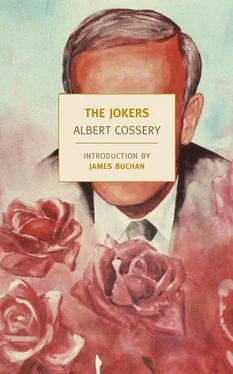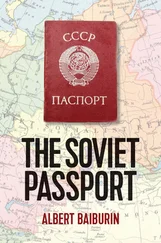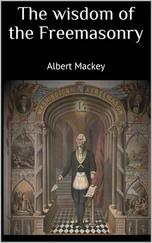As the French are the wittiest race in Europe, so are the Egyptians in Africa. Cossery’s comedy derives from the contraposition of exquisite French and an exceptionally squalid setting. His is not the French I learned at school, let alone that spoken nowadays
in metropolitan France, but he writes sentences of which Balzac would have been proud. His style depends for its effect on precise and outlandish adjectives, as in the description here of the terrace of the Globe Café. That is not the very best style in English, which likes verbs and nouns, and presents a challenge to his translator.
Cossery has his faults. There is a certain rigidity of posture, which is open to parody, and, most notably in Proud Beggars, a daft nihilism. There is not the slightest inquiry as to why the poor of Egypt are poor nor, in a country that passed in Cossery’s lifetime from British protectorate, to parliamentary monarchy, then to military junta, nationalist autocracy, and dynastic republic, any sense of history or process in the affairs of humanity. To nobody’s surprise but Cossery’s, the Arab world has chosen not derision but violence.
Cossery has a superstitious terror of family life and makes no attempt to penetrate it. Females shed all interest at puberty, or, as with Soad in this novel, at the moment they put up their hair. Thenceforth, Cossery’s women are commères, acariâtres, mégères— gossips, old bags, shrews.
Cossery writes in French not just because he needs the urbanity and distance of a foreign language to display his Cairo and Alexandria but because God writes in Arabic, which brings all kinds of entanglements. Cossery’s achievement, substantial as it is, lacks the audacity and toughness of the Egyptian novelists in Arabic such
as Naguib Mahfouz, Yahya Haqqi, or Taha Husain. Yet Mahfouz has many more readers in French and English translation than in his native Arabic, so perhaps Cossery has the last laugh.
— JAMES BUCHAN
The day promised to be exceptionally torrid. The policeman, who had just taken up his position at the city’s most distinguished intersection, suddenly felt that he had fallen prey to a mirage. It had to be the sweat pouring down his gloomy features, making him resemble a designated mourner in the midst of a funeral service, that was interfering with his vision; he blinked several times, as if to remedy his defective eyesight and get a sharper perspective on things, but this feeble effort was to no avail. So he pulled a red-and-white-checkered handkerchief — as coarse and dirty as a dishrag — from his pocket and mopped his face vigorously. Having thus clarified his view of the world (at least for a moment), he turned his gaze on the mirage — and received a shock. For what he saw — insofar as he could make out anything distinctly — was a beggar, a finer specimen than he’d seen in a long time, lounging comfortably at the corner of a brand-new, quite splendid building, one that contained a bank and a jeweler, no less: two aspects, in other words, of a universal metaphysical order that demanded immediate protection from the rabble. As if driven by murderous rage, the policeman shoved the handkerchief back into his pocket and, blinking continually so as not to lose the benefit of his newfound sight, lunged straight at the impudent wretch. Orders had gone out a month ago: the city must be liberated from the lowlifes that had taken to swarming like ants at a picnic in even the most respectable streets. This was one of many directives that the new governor — a man bursting with bold initiatives — had issued, and admittedly, it was the most difficult to carry out. The new governor’s ambition was to clean up the streets and protect them from any further blots upon their honor; he talked about streets as if they were people. So, after the prostitutes, the street vendors, the cigarette-butt collectors, and other minor scofflaws, he had set his sights on the beggars, a peaceful race with such deep roots in the soil that no presumptive conqueror before him had ever succeeded in exterminating it. It was as if he wanted to disburden the desert of its sand.
So the policeman, this zealous servant of a mighty state, threw himself at the beggar (whose very serenity was a kind of provocation), roundly berating him according to rules of a time-tested art. But the beggar failed to react to these insults, murderous though they were. He was an old man, hideously wrinkled, with a gray beard that swallowed up the whole of his face and a head that vanished under an enormous turban. His eyes were closed, and the thick black circles under them gave him an epicene appearance altogether unusual for a bum. What’s more, he was dressed in a fanciful multi-colored outfit better suited to a street acrobat than to a man in his condition. This eccentric old man, the ancestor of his eternally persecuted race, seemed sunk in a deep sleep that even the deafening roar of the countless cars fighting through the intersection could not disturb. At last, realizing the futility of his insults and orders, the cop gave the bum a kick, and then another kick, to knock him out of his infuriating inertia. He was just about to kick him again when he saw the beggar abandon his initial position and slump to the ground, where he assumed the proud and thoroughly disdainful attitude of the dead. For a moment, the policeman thought he’d killed him and was seized with panic at the thought of having lost his prey. A dead beggar was worth less than nothing; it might even get him fired. He needed this bum to be alive. Bending over the old man, he grabbed him by his turban, shaking him with savage fury in an attempt to bring him back to life. This action was both rash and irreparable: as if by magic, the beggar’s head became detached from his neck and remained stuck to the turban, which the policeman continued to brandish in the air like a bloody trophy. The crowd of gawkers that had gathered around the two protagonists let out a collective cry of horror and spewed an indignant stream of outrage at the policeman, who, dropping his trophy, stared at the baying pack of dogs with the look of someone suffering from stomach cramps. It took awhile before the high spirits that had been excited by the morning carnage succumbed to the realization that it was all a hoax. What had at first appeared to be a genuine flesh-and-blood beggar was in fact only a dummy, ably made up by a skilled artist, that had been left out in this respectable neighborhood precisely in order to provoke the police. Far from calming the crowd, this discovery incited it to an opposite extreme; people began to snigger and sneer at the unfortunate cop, who stood there stunned. Faced with this jeering mob, their jibes piercing his uniform like so many darts, the poor man took up his regulation whistle and let out a series of shrill blasts in the hopes of attracting some of his more courageous colleagues from nearby patrols. But his summons went unheard, and in any case the crowd was already dispersing, having had its fun for the day. People returned to their private difficulties and disappointments, each recounting the story in his own fashion, but always with the sense of gleeful malice that is felt on the street whenever some representative of authority is dealt a blow.
A kilometer away, in a room located on the roof terrace of a six-story building by the sea, young Karim, the instigator of this farce, was hardly gloating over his attack on the governor’s authority. He wasn’t even thinking about it. Lying on his bed, shirtless, his fingers busily twisting a lock of hair on his forehead, he looked as lazy as a bored monarch, glutted with wealth and pleasure. Karim gave himself up to a feeling of delicious languor, while enjoying the voluptuous vision of his mistress from the night before getting dressed in the middle of the room. From the patronizing smile that played on his lips you would have thought he was observing a procession of dancers, lasciviously swaying their hips for his pleasure alone, instead of a poor creature (picked up on the street) whose modest charms no longer held a single secret for him. Karim’s languorous pose was meant to suggest an atmosphere of luxury and decadence, but in fact it hid the state of nervous tension that had been racking him since he woke up. As always on such occasions, Karim had produced the effect with an end in mind: it set the scene for a special stratagem he had developed to discourage the venality of his fleeting lovers. The success of the stratagem was certain, and yet every time he deployed it his heart beat wildly. Now the moment when he would be forced to show his cards was inexorably approaching.
Читать дальше












